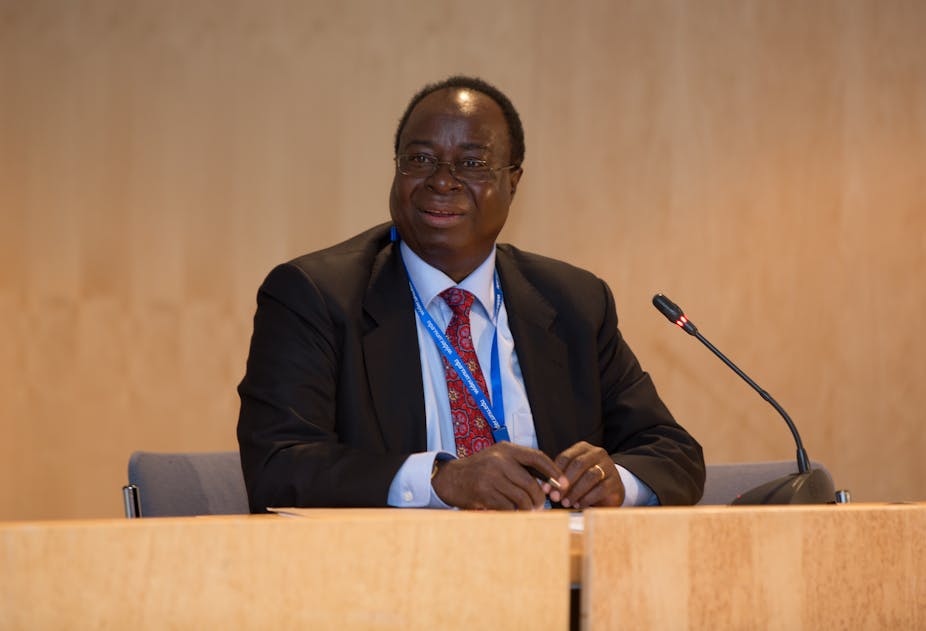In a 1967 article, the late Professor Ali Mazrui spoke about “Tanzaphilia”, explaining it as “a romantic spell which Tanzania casts on so many of those who have been closely associated with her.” Mazrui was an internationally renowned Kenyan-born professor, historian and author.
This description of Tanzania aligns with the vision of the first president of Tanzania, Julius Nyerere, which likened Tanzania to a candle on top of Mount Kilimanjaro that sends beyond its borders rays of hope, love and dignity.
It is unfortunate that in recent years Tanzania has become the opposite of Mazrui’s description and Nyerere’s vision. A vivid manifestation of this sharp turn is the denial of the COVID-19 pandemic as the rest of the East Africa region has acknowledged the pandemic and taken steps to manage it.
Nevertheless, the essence of Tanzaphilia has been sustained by a handful of visionary people who have been a positive influence not only in the country but across its borders.
Professor Benno Ndulu, the former governor of the Bank of Tanzania (Tanzania’s central bank), who died on 22 February 2021, was one of these exceptional Tanzanians. He shone his light in Tanzania and beyond its borders. He used his knowledge and expertise to influence economic policy nationally, regionally, and internationally.
He started of as an economics lecturer at the University of Dar-es-Salaam in 1979. After completing his doctorate at Northwestern University in the US, he became a professor of economics at the same institution in 1992.
In 1988, he was one of the founders of African Economic Research Consortium. The consortium was established to carry out applied economic research to inform economic policies.
And in 1997, he was awarded a honorary doctorate from the International Institute of Social Studies in The Hague, Netherlands, in recognition of his capacity building and research on Africa.
While at the Bank of Tanzania, he was renown for creating polices that that promoted growth within an inclusive economy.
A heart for his homeland
Ndulu had many opportunities to work internationally. Indeed, at one time he was a lead economist at the World Bank. But he never forgot his home country.
Born in the rural district of Kilombero in Morogoro region, Ndulu attended Catholic Church mission schools. He went to a Catholic primary school and a seminary for lower secondary school. He then joined a public school for upper secondary, after which he enrolled at the university of Dar-es-Salaam to study economics.
He was committed to the Tanzania ideal as espoused by Mazrui and Nyerere. And he was determined to work with others in the fight against poverty.
When he was appointed governor of the Bank of Tanzania in 2008, he inherited an organisation that was reeling from unmitigated corruption and bad governance.
Ndulu quickly got to work. He focused on instituting monetary policies towards growth and containment of inflation. He also created governance structures designed to manage graft.
But he could not avoid political interference altogether and at one point was compelled by a court order to make payments to emergency power suppliers without due diligence.
During his tenure he oversaw stable economic growth at the rate of 7% per year. He promoted economic growth as a way of fighting entrenched poverty in the country. This was a change of policy direction that appreciated the role of growth and trade in eliminating poverty.
Thanks to his efforts and economic approach during his time at the bank, the number of Tanzanians living in extreme poverty reduced from 34.4% in 2008 to 26.4% in 2018.
Ndulu introduced monetary approaches that contained inflation, allowed expansion of financial services, and gave small entrepreneurs access to credit.
With a strong focus on economic growth for all, he ensured financial inclusion by facilitating the expansion of financial institutions and platforms such as registration of community banks, banking agencies, foreign exchange outlets, village community banks, and saving and credit societies. This was part of his overall vision to create an equitable Tanzanian society where every citizen could share in the prosperity of their nation.
In 2019, one year after he left Tanzania’s central bank, he became an economic advisor to South African president Cyril Ramaphosa. He also became a member of the new Presidential Economic Advisory Council of the Republic of South Africa.
At the time of his death, he had been approached by Ethiopian President Abiy Ahmed to act as a special adviser to the Central Bank of Ethiopia.
Ndulu also served on the board of the Bill and Melinda Gates Foundation and was a visiting professor and senior advisor at the Blavatnik School of Government at Oxford University.
New coronavirus
Ndulu was an accomplished academic with numerous publications on development economics. He was also a critical thinker who didn’t hesitate to speak his mind.
For example, in 2020 when President John Magufuli’s COVID-19 denial strategy was at its peak, Ndulu spoke out on the need to balance lives and livelihood. Subtly, he stated that lives cannot be replaced.
Ndulu has left big shoes to fill. Tanzania now has to focus on creating an environment where citizens with his foresight, ability and expertise can thrive. Tanzania needs a fresh opportunity to rekindle its candle and claim the glory that was envisioned by its founding fathers.

